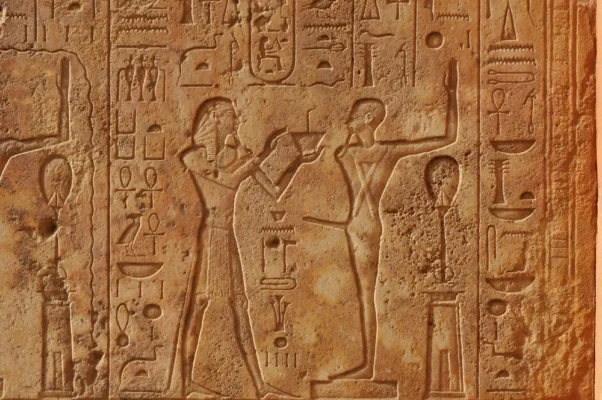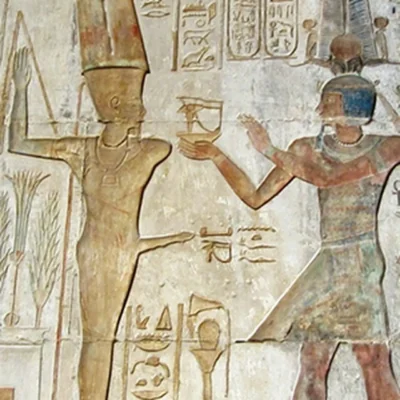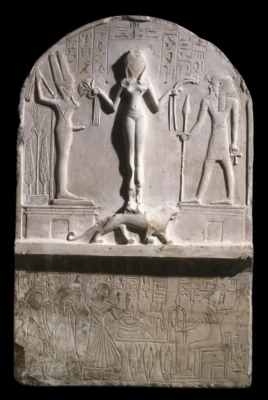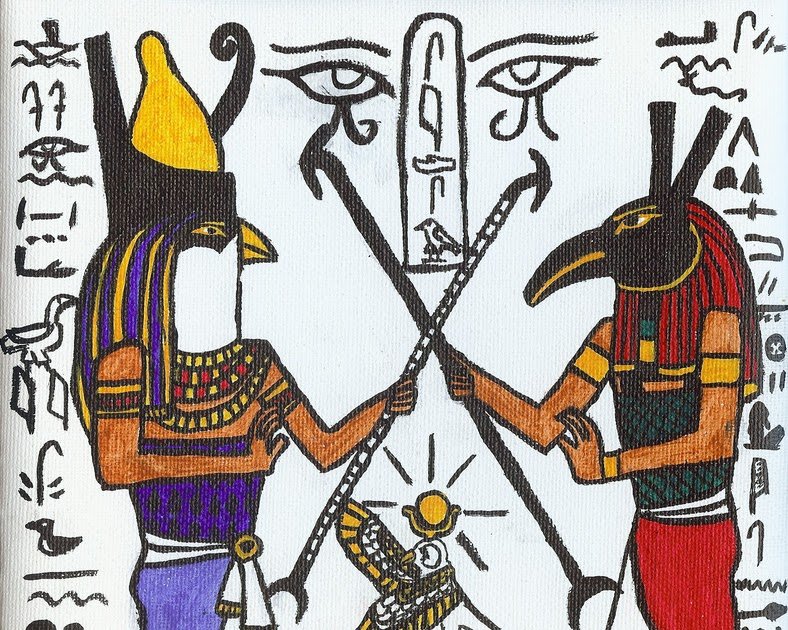Ancient Egyptian Culture, Food & Drink, Food and Beverage, Food and Culture, History, History and Culture, History and Mythology, Mythology, Mythology and Culture, Mythology and History, Weird History
Lettuce: The Unexpected Aphrodisiac in Ancient Mythology
The Mythological Background of Horus and Set
The ancient Egyptian myth of Horus and Set presents a narrative deeply embedded in the cultural fabric of Egypt, reflected through the gods that represent opposing forces. Horus, often associated with sovereignty, protection, and the sky, stands in stark contrast to Set, the god of chaos, storms, and disorder. Their myth serves as an archetype of the eternal conflict between order and chaos, light and darkness, capturing the very essence of the human experience in the ancient world.
This animosity originates from the story of Osiris, the father of Horus. Osiris, who symbolized fertility and agriculture, was murdered by his brother Set out of jealousy and ambition. In retaliation for his father’s death, Horus embarked on a series of battles against Set to reclaim his rightful place on the throne of Egypt. This struggle not only highlights the themes of power and vengeance but also encapsulates deeper psychological elements concerning identity and the quest for legitimacy in the face of adversity.
The conflict between Horus and Set goes beyond mere rivalry; it showcases the duality of existence within the ancient Egyptian belief system. Set’s chaotic nature contrasts sharply with Horus’s orderly existence, offering a profound reflection on the dynamics of power and control. Moreover, the myth intertwines themes of sexuality, particularly as it pertains to the mystical properties attributed to plants celebrated in their rituals and practices, including lettuce. These same plants were often described as potent symbols of fertility and desire, pointing to the broader implications of how the ancients perceived nature and its relationship to divine narratives.
In summary, the tale of Horus and Set is not just a story of divine conflict but serves as a mirror to the societal values of ancient Egypt, illustrating the complexities of power, sexuality, and the underlying forces that govern the universe. Understanding these motifs aids in appreciating how ancient cultures revered plants, such as lettuce, as significant not only for sustenance but as part of a larger ceremonial context that celebrates life and vitality.

Lettuce as an Ancient Aphrodisiac
The historical significance of lettuce, particularly in ancient cultures, reveals its intriguing role as an aphrodisiac. Many civilizations, including the Egyptians, believed in the potent qualities of lettuce, specifically varieties such as romaine lettuce. This green leafy vegetable was not only valued for its nutritional benefits but was also revered for its perceived ability to stimulate sexual desire and enhance fertility. Ancient texts and artifacts have documented its association with fertility rites and sexual rituals, thus solidifying its status as a symbol of virility.
In ancient Egypt, lettuce was often dedicated to the god Min, the deity associated with male fertility and virility. This connection underscores the collective belief that consuming lettuce could promote vitality and vigor. The Egyptians believed that the plant’s crunchy texture and distinct flavor contributed to its aphrodisiac qualities. They often included it in their diets, particularly in elaborate meals intended for celebrations and fertility festivals, where the emphasis on reproduction was paramount.
Moreover, lettuce consumption extended beyond mere culinary enjoyment; it was woven into the fabric of medicinal practices. Ancient herbalists utilized lettuce in various concoctions aimed at improving sexual health and potency. The leafy vegetable was typically consumed raw in salads or blended with other ingredients to produce potent mixes believed to invigorate the libido. These methods reflect a deep-seated cultural understanding of the relationship between food and sexual wellness, emphasizing lettuce’s dual role as both nourishment and a facilitator of romantic desire.
As such, the historical association of lettuce as an aphrodisiac not only highlights the vegetable’s role in ancient culinary practices but also illustrates how societies have intertwined food and sexuality throughout history. Emphasizing its historical context reinforces the notion that lettuce, particularly varieties like romaine, was celebrated not merely as sustenance but as a fundamental component of love and desire.

The Role of Lettuce in Horus’ Victory Over Set
The myth of Horus and Set is a profound tale of conflict, representing the struggles between good and evil, order and chaos. In a pivotal moment within the narrative, Horus regains his strength against Set not through conventional weaponry or combat tactics, but rather by consuming lettuce. This act may initially seem trivial, yet it embodies a significant turning point within the myth, encapsulating the idea that true strength can originate from the natural world surrounding us.
In ancient Egyptian mythology, lettuce was not just considered a mere food source; it held deeper symbolic meanings and was often associated with fertility and vitality. By consuming lettuce, Horus’s action highlights an essential theme — that empowerment can arise from unexpected sources. This unexpected choice conveys that the forces of nature can provide a form of sustenance that transcends physical nourishment, suggesting a bond between humanity and the earth that promotes healing and even spiritual strength.
The transformation of Horus, aided by a seemingly mundane plant, serves as a reminder that attributes such as resilience and courage can flourish in the most unlikely of circumstances. This allegorical moment suggests that adversity does not solely rely on brute force; rather, the overcoming of challenges may come from embracing the subtler, more holistic forces that nature bestows upon us.
As Horus regains his position of power through this consumption of lettuce, a profound connection emerges between the natural world and one’s fate. This narrative twist invites us to explore how humility, nourishment, and nature interlink in the journey toward personal and collective empowerment—an enduring lesson that remains relevant even in contemporary discussions surrounding resilience and the human experience.

Contemporary Interpretations and Cultural Reflections
The myth of Horus and Set, intertwined with the symbolism of lettuce, continues to resonate within modern culture, revealing how ancient narratives intertwine with contemporary themes of sexuality and power. In various forms—literature, film, and social discourse—these age-old stories serve as a profound backdrop for addressing complex issues related to love and desire. The unexpected association of lettuce with aphrodisiac qualities challenges traditional perceptions, inviting contemporary audiences to reflect on the origins of their own beliefs about attraction and desirability.
In literature, authors are increasingly drawing from mythological elements to enhance character development and narrative depth. The duality of light and darkness found in the story of Horus and Set can be seen in modern narratives that explore the tension between love and conflict, power and submission. For instance, the portrayal of relationships in dystopian novels often echoes this dualism, inviting readers to question what it means to wield power in romantic contexts. These retellings and adaptations often infuse ancient symbols, like lettuce, into their narratives, subtly reinforcing themes of fertility and unexpected sources of passion.
Similarly, film continues to utilize mythological frameworks to depict human relationships, showcasing the metaphorical connections between culinary delights and sensual experiences. The idea of lettuce as an aphrodisiac emerges in contemporary storytelling, emphasizing the role of food as a catalyst for intimacy. This representation in media encourages audiences to reconsider their understanding of attraction, acknowledging that the allure of love can stem from unconventional sources, much like the ancient Egyptians believed. As cultural attitudes evolve, so too does the appreciation for the relationships we maintain with nature, illustrating how historic beliefs shape our modern perceptions of desire.
Ultimately, the legacy of myths like that of Horus and Set remains vibrant, beckoning us to explore the depths of human connection through the prism of nature’s gifts, such as lettuce. As we navigate today’s complex romantic landscapes, ancient wisdom continues to guide and inform our insights into love and relationships.

















